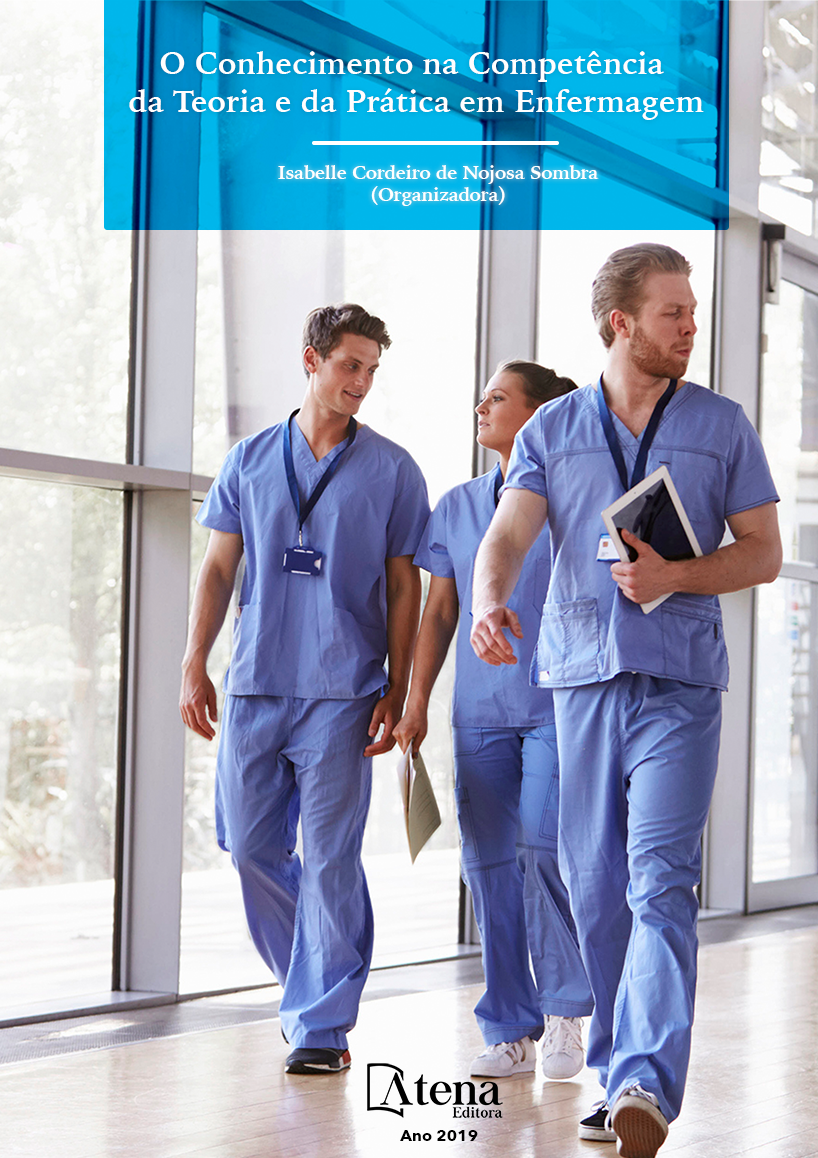
A ENFERMAGEM AUXILIANDO NA TRANSIÇÃO DA MULHER COM SÍFILIS
Introdução: A sífilis é uma infecção
sexualmente transmissível, evitável, curável,
porém as metas para o seu combate e
erradicação não têm tido êxito. Na gestação
a doença se torna mais preocupante pela
possibilidade de transmissão vertical. Objetivo:
discutir a atuação da enfermeira com mulheres
que transmitiram Sífilis para os seus filhos,
na perspectiva da Teoria da Transição de
Afaf Meleis. Metodologia: Estudo qualitativo,
descritivo e exploratório, com o método narrativa
de vida, realizado no setor de alojamento
conjunto de um Hospital Maternidade Municipal
no Rio de Janeiro, com 18 participantes.
Critério de inclusão: mulheres que transmitiram
sífilis a seus filhos. Conforme análise temática
segundo Daniel Bertaux, emergiram uma
categoria: Transições vivenciadas por mulheres
após diagnóstico da sífilis na gravidez e a
subcategoria: A atuação da enfermeira no
processo de transição da mulher com sífilis.
Resultados: Evidenciou-se a eficácia do
diagnóstico da sífilis no pré-natal e a dificuldade
na prevenção da sífilis congênita. Discussão:
Para algumas mulheres a sífilis permanece no
anonimato e o seu diagnóstico desencadeia
um processo de mudança com vários tipos
de transição. A enfermeira tem a competência
de conduzir a mulher na realização de uma
transição saudável através do planejamento
da assistência individualizada e contínua. A
transição saudável consiste no percurso da
mulher através das mudanças ocorridas na
gravidez, na aquisição e transmissão da sífilis
com respostas positivas para reestabelecer
a estabilidade perdida ao início do evento
crítico. Conclusão: Estratégias educativas que
atinjam a mulher na educação sexual para
além do período gravídico puerperal fazem-se
necessárias.
A ENFERMAGEM AUXILIANDO NA TRANSIÇÃO DA MULHER COM SÍFILIS
-
DOI: 10.22533/at.ed.6711912032
-
Palavras-chave: Sífilis; Sífilis Congênita; Saúde da Mulher; Enfermagem; Cuidado de Transição.
-
Keywords: Syphilis; Congenital Syphilis; Woman’s Health; Nursing; Transition Care.
-
Abstract:
Introduction: The syphilis is a
sexually transmissible disease, avoidable,
curable, however the goals for its combat and
eradication have not been success. In the pregnancy, the disease becomes more
worrying by the possibility of vertical transmission. Objective: to discuss the nurse´s
performance with women who transmitted Syphilis to their children, in the perspective
of the Theory of Transition of Afaf Meleis. Methodology: Qualitative, descriptive and
exploratory study, with the life-history method, carried out in the rooming-in sector of a
Municipal Maternity Hospital in Rio de Janeiro, with 18 participants. Inclusion criteria:
women who transmitted syphilis to their children. According to the thematic analysis of
Daniel Bertaux, one category emerged: Transitions lived by women after the syphilis
diagnosis in the pregnancy and the subcategory: The performance of the nurse in the
transition process of the woman with syphilis. Results: It showed the effectiveness
of the syphilis diagnosis in the prenatal and the difficulty in the congenital syphilis
prevention. Discussion: For some women the syphilis remains in the anonymity and its
diagnosis trigger a change process with several types of transition. The nurse has the
competence to conduct the woman in the realization of a healthy transition through the
planning of the individualized and continuous assistance. The healthy transition consists
on the woman route through the changes occurred in the pregnancy, in the acquisition
and transmission of the syphilis with positive responses to reestablish the lost stability
to the start of the critical event. Conclusion: Educative strategies that reach the woman
in the sexual education besides the pregnancy puerperal period are necessary.
-
Número de páginas: 15
- Valéria silva de Mello
- Rosângela da Silva Santos


